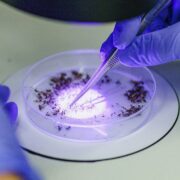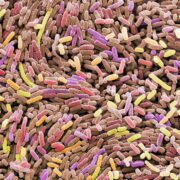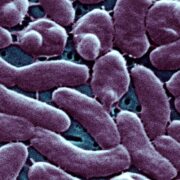
To Ditch Pesticides, Scientists Are Hacking Insects’ Sex Signals
It’s now possible to mass-produce pheromones that keep insects from breeding near crops—protecting cereals and other staples with fewer chemicals. ..

It’s now possible to mass-produce pheromones that keep insects from breeding near crops—protecting cereals and other staples with fewer chemicals. ..

New evidence indicates that an effort to stamp out disease-carrying insects is working. The key? Mosquitoes genetically engineered to kill off their own kind. ..

Field research uncovers clues about the beetles’ coordinated blinking and confirms that a novel form of “chimeric” synchrony occurs naturally. ..

A small study of people with a rare disorder that prevents them from processing protein is an early attempt at creating “living” medicines. ..

Chemists have long conceptualized tiny machines that could fabricate drugs, plastics, and other polymers that are hard to build with bigger tools. ..

The US government is funding tech to determine whether genetic alterations in a virus or pest are an evolutionary quirk—or a lab-engineered danger. ..

Despite having tiny arthropod brains, spiders in a new experiment showed some complex cognitive calculations. ..

These cells—and the way they reawaken—can tell biologists quite a lot about life, death, and the gray zone in between. ..

Florida’s storms unleashed deadly vibrio bacteria in their wake. They’ll be a growing threat as the world gets warmer and wetter. ..

People have been searching for a fountain of youth for thousands of years. Celine Halioua thinks she’s found one—for canines. Be patient, we’re next. ..